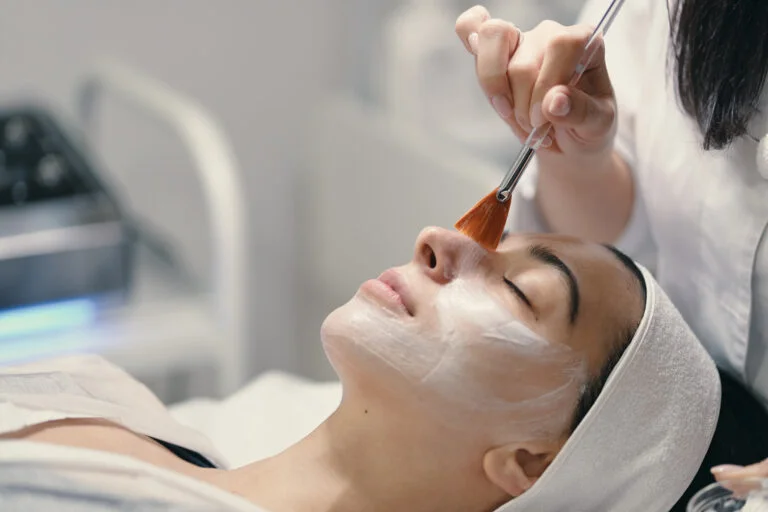Protecting Your Skin Against Summer’s Rays
As the warmth of summer begins to envelop us, the allure of outdoor activities grows stronger. Whether you’re heading to the beach, hiking under the golden sun, or simply lounging in your backyard, summer is a season to embrace – but not without caution. Amidst all the fun, one essential item should never be overlooked: sunscreen in summer. Among the myriad options available, mineral sunscreens prove to be a superior choice, especially when compared to their chemical counterparts. This blog will explore the importance of sunscreen, delve into the science behind UV protection, and highlight why mineral sunscreens deserve a place in your daily skincare routine as summer begins.
Why Sunscreen Matters
Exposure to sunlight is undeniably beneficial, offering us much-needed vitamin D and boosting our serotonin levels. However, the sun’s rays also carry significant risks, particularly for our skin. Ultraviolet (UV) radiation from the sun is a major cause of skin damage, premature aging, and skin cancer. Sunscreen protection acts as a barrier, shielding our skin from harmful UV rays and preserving its health and vitality. The importance of sunscreen in summer cannot be emphasized enough—skincare in summer begins with proper UV protection.
The Effects of UV Radiation
UV radiation is categorized into three types: UVA, UVB, and UVC. While UVC rays are mostly absorbed by the Earth’s atmosphere, UVA and UVB penetrate our skin, causing a range of effects:
- UVA rays: These rays account for 95% of the UV radiation that reaches the Earth’s surface. They penetrate deep into the skin, leading to premature aging, wrinkles, and long-term damage.
- UVB rays: Although less prevalent, UVB rays are more potent and are the primary cause of sunburns. They damage the outer layer of the skin and increase the risk of skin cancer.
The Rising Concern of Skin Cancer
Skin cancer remains one of the most common cancers worldwide. According to the Skin Cancer Foundation, one in five Americans will develop skin cancer by the age of 70. Daily sunscreen protection can significantly reduce the risk of skin cancer, emphasizing the importance of sunscreen in your skin care routine year-round, not just during the summer months. The growing awareness underscores why sunscreen in summer must be non-negotiable.Mineral Sunscreens
Mineral sunscreens, often referred to as physical sunscreens, employ active ingredients such as zinc oxide and titanium dioxide. These minerals sit on the surface of the skin, reflecting and scattering UV rays. Their advantages are manifold:
Eco-friendly: Being reef-safe, they do not harm marine life when washed into water systems.
Broad-spectrum protection: Mineral sunscreens effectively block both UVA and UVB rays.
Gentle on skin: Ideal for sensitive skin, mineral sunscreens are less likely to cause irritation.
Immediate efficacy: Unlike chemical sunscreens, mineral sunscreens work instantly upon application. They can therefore be applied exactly when you are in the sun.
Chemical vs. Mineral Sunscreens: Understanding the Difference
When choosing a sunscreen, the wide variety of options can be overwhelming. Sunscreens are broadly divided into two categories: chemical sunscreens and mineral sunscreens. Understanding their differences is crucial for making informed decisions about your skincare in summer for protection. You can do this with the help of a seasoned dermatologist.
Chemical Sunscreens
Chemical sunscreens contain active ingredients that absorb UV rays and convert them into heat, which is then released from the skin. Common chemical ingredients include oxybenzone, avobenzone, and octinoxate. While effective in UV protection, chemical sunscreens raise several concerns:
- Potential skin irritation: Chemical sunscreens can cause allergic reactions or irritation, particularly for sensitive skin.
- Hormonal disruption: Ingredients like oxybenzone have been linked to hormonal interference, raising safety concerns.
- Environmental impact: Chemical sunscreen ingredients have been found to damage coral reefs, contributing to marine ecosystem degradation.
- Inconvenience: To work, chemical sunscreens must be applied at least 2 hours before sun exposure.
Mineral Sunscreens
Mineral sunscreens, often referred to as physical sunscreens, employ active ingredients such as zinc oxide and titanium dioxide. These minerals sit on the surface of the skin, reflecting and scattering UV rays. Their advantages are manifold:
- Broad-spectrum protection: Mineral sunscreens effectively block both UVA and UVB rays.
- Gentle on skin: Ideal for sensitive skin, mineral sunscreens are less likely to cause irritation.
- Immediate efficacy: Unlike chemical sunscreens, mineral sunscreens work instantly upon application. They can therefore be applied exactly when you are in the sun.
- Eco-friendly: Being reef-safe, they do not harm marine life when washed into water systems.
The Science Behind Mineral Sunscreens
Mineral sunscreens act as physical blockers, creating a shield that reflects UV radiation away from the skin. Zinc oxide and titanium dioxide are the two primary active ingredients, each offering unique benefits:
- Zinc oxide: Provides broad-spectrum UV protection, shielding against both UVA and UVB rays. It is particularly effective for sensitive skin.
- Titanium dioxide: Offers UVB and short UVA protection, making it a complementary ingredient to zinc oxide.
Non-Nano vs. Nano Particles
Mineral sunscreen formulations often include non-nano particles. These larger particles sit on the skin’s surface rather than being absorbed, ensuring safety and efficacy. Additionally, non-nano formulations are less likely to pose risks to marine environments.
The Value of Mineral Sunscreens
As the summer begins, switching to mineral sunscreens advised by an expert dermatologist can be a game-changer for your skin and the environment. Here’s why they stand out:
Skin Benefits
- Suitable for all skin types: Mineral sunscreens are hypoallergenic, making them safe for sensitive skin, acne-prone skin, and even children.
- Anti-inflammatory: Zinc oxide possesses calming properties, reducing redness and irritation.
Environmental Benefits
- Reef-safe: Mineral sunscreens do not contain harmful chemical sunscreen ingredients that bleach coral reefs, ensuring marine ecosystem preservation.
- Biodegradable: Their natural composition allows for safer decomposition without harming the planet.
Choosing the Right Mineral Sunscreen
To maximize the benefits of mineral sunscreen, consider the following tips when selecting your product:
- SPF level: Opt for sunscreens with SPF 30 or higher for adequate sunscreen protection.
- Broad-spectrum: Ensure the sunscreen offers both UVA and UVB protection.
- Non-nano formulation: Choose products with non-nano zinc oxide or titanium dioxide.
- Water resistance: For outdoor activities, select water-resistant formulas that last longer.
Applying Sunscreen Effectively
To ensure optimal UV protection, proper application is key. Follow these steps:
- Apply sunscreen generously to all exposed skin, including often-missed areas like ears and the back of your neck.
- Reapply every two hours, or immediately after swimming or sweating.
- Combine sunscreen use with other protective measures, such as wearing hats, UPF clothing, and sunglasses.
Mineral Sunscreens: A Sustainable Choice
Beyond personal benefits, mineral sunscreens contribute to a more sustainable planet. By choosing reef-safe options, you actively support marine conservation efforts. As awareness grows, brands are prioritizing eco-friendly formulations, making it easier than ever to align your skincare routine with environmental values.
Conclusion
As summer starts, the importance of sunscreen cannot be overstated. Protecting your skin from harmful UV radiation is essential for preventing sunburn, premature aging, and skin cancer. While both chemical and mineral sunscreens offer UV protection, mineral sunscreens emerge as the safer, more sustainable choice. Their gentle, effective, and eco-conscious nature makes them the ideal companion for summer adventures. By embracing mineral sunscreens, you not only safeguard your skin but also contribute to preserving the planet for future generations. So, as you prepare to soak up the sun, consult an expert dermatologist and pack your mineral sunscreen – your skin and the Earth will thank you.








